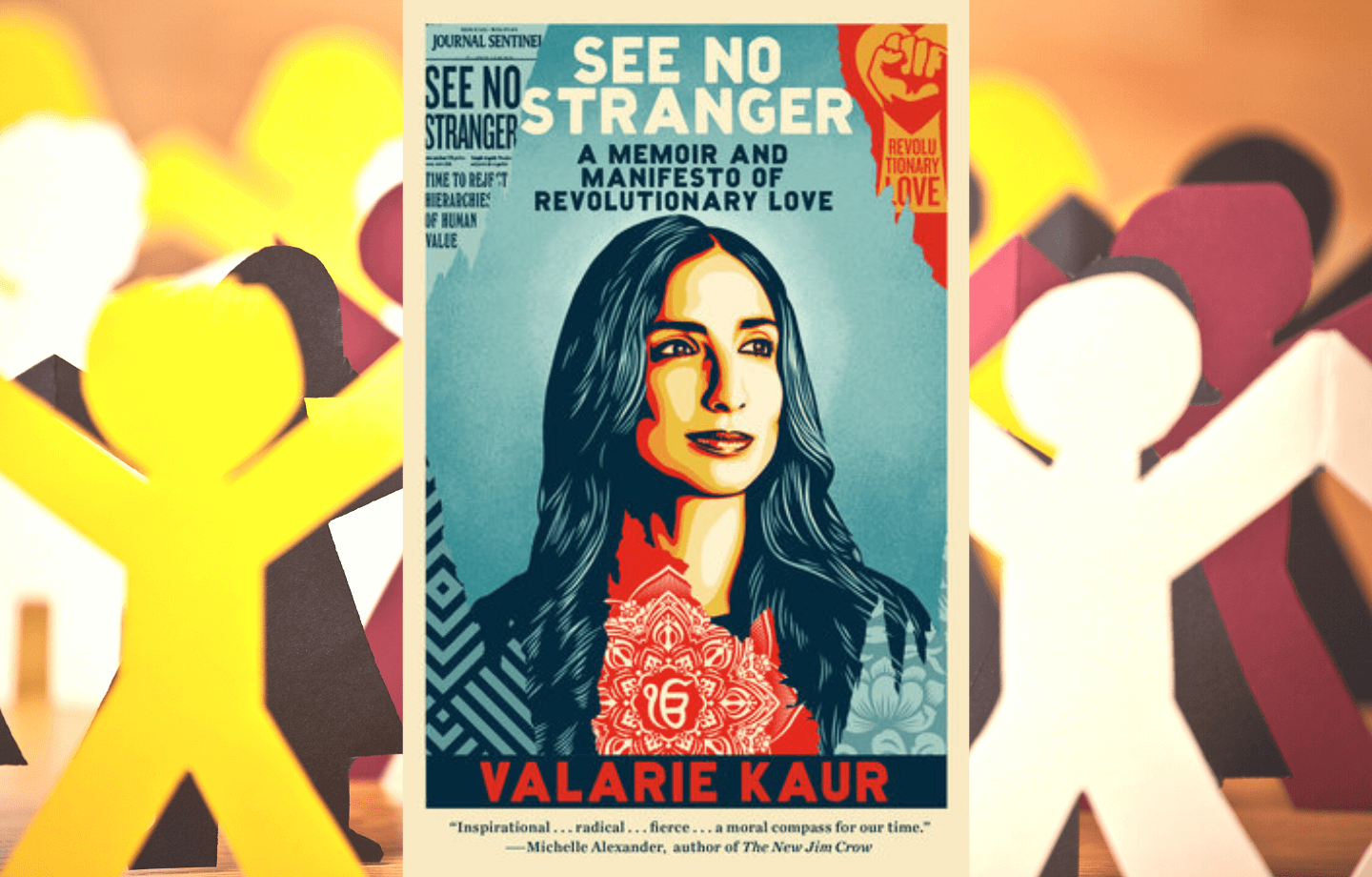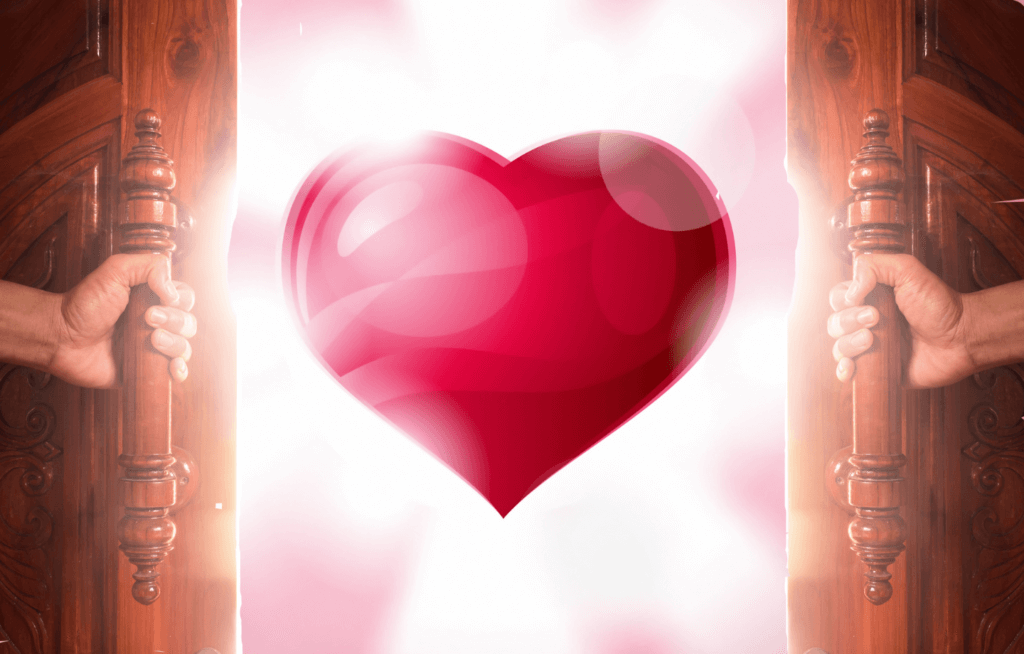
- This event has passed.
See No Stranger
Sunday, September 25 @ 10:30 am - 11:30 am


A sermon based on the book by Valarie Kaur: “When you choose to see people as your cousin, as your other self, as the friend you have not met yet, you are being courageous and compassionate. When we are curious about the people in our lives, their thoughts, their pain and joys, their wants and needs, we get a glimpse into their humanity, into their hearts, as vast and complex as our own. That wonder, is the wellspring for love.” Rev. Dr. María Cristina Vlassidis Burgoa will be preaching.
How to Attend
We require masks in all buildings. We encourage all in person participants to be vaccinated. Read more about our In Person Guidelines here.
• To virtually attend, please Zoom in using room number 989 3107 9078, passcode: chalice.
• To phone into the service, call 669-900-6833, Meeting ID: 989 3107 9078.
For those joining, please mute as soon as you enter the room, so everyone can hear. Please note, the services will be recorded, but at this time, there are no plans to share the recording.
More Information
Religious Education for children and youth happens during worship on Sundays. Children and youth arrive in the Sanctuary for the just a little bit and welcome in Sunday with a story and song. Then, they attend their own programs in the Education building. Learn more here!
If you don’t have a chalice, but want to light one, check out our Making a Chalice at Home page.
Both virtual and in person services are followed by coffee hour.
Children’s Story
Sermon Audio
See No Stranger
Sermon Text
Valarie Kaur’s book See No Stranger: A Memoir and Manifesto of Revolutionary Love is intense, challenging, painful, and miraculous. Giving us a new perspective on the times we are living in: times when love and light are sometimes hard to find amidst the pandemics of racism, environmental devastation, and covid19…at just 20 years old she traveled cross country to interview victims of violent racist attacks after 9/11, when ground zero was still smoldering… Her interviews would become her film “Divided We Fall” – [https://valariekaur.com/film/divided-we-fall/]
As her journey continues, Valarie finds strength in the love and the lessons learned from her dear grandfather, Papa Ji who taught her about the magic and power of wonder and the foundational principle of the Sikh faith.
For the past two weeks, I have been mentioning Valarie Kaur because she has been inspiring my ministry since we were in seminary together. She could be my daughter and I see her as a guiding light, so wise, such a prophetic voice! Someone who risked her own safety and that of her family, in order to lift up the stories of grieving widows and children, and of entire communities devastated by violence. As a human rights attorney, she traveled to Guantanamo, unearthing the stories of people silenced and made invisible for decades. She has brought together a brother and his brother’s killer; She has documented a widow’s forgiveness of the person and the nation that fueled hatred against her husband. Every year for the past 2 decades she has been gathering at the site of bloody anti-muslim, anti-Sikh massacres to promote understanding, hoping to transform hearts, and encouraging all to practice revolutionary love. She has received many awards and is recognized as a human rights activist and faith leader. Recently she was honored by President Biden in the United We Stand summit at the White House to “counter the destructive effects of hate-fueled violence on our democracy and public safety, mobilize diverse sectors of society and communities across the country to these dangers, and put forward a shared, inclusive, bipartisan vision for a more united America.” Valarie and 15 other leaders were recognized as “Uniters” healing America…This is the power of stories: bringing people together, lifting up the work of love and justice that is all around us, and most importantly, activating healing energies in order to tend to the broken places.
There are so many ways in which our country and our communities are being torn apart. It is easy to get discouraged. One of my favorite spiritual guides, Mr. Rogers, taught us that in the midst of chaos and destruction, if we pay attention and listen, we will find the helpers and we will feel less alone. Less afraid. Bearing witness to another’s pain and allowing others to bear witness to our own, brings us closer together. We do this every time we reach out and share our story.
Valarie’s book, See No Stranger, offers us a glimpse into the history of the United States through the lived experiences of a Sikh woman, a daughter, granddaughter, mother, activist, lawyer, founder of the Revolutionary Love Project. The writing is very personal, intimate, filled with heartbreaking stories yet always bringing us back to love, to joy, to a healing place, to the questions that might transform our hearts and our world. What do we do with our anger? How do we practice loving our opponents? In thinking about the many ways that our nation is being torn apart, losing the light of compassion, the light of love, she asks: what if this is not the darkness of the tomb but the darkness of the womb? What if we are in transition, all of us being asked to breathe and push in order to give birth to a new nation?
And she wrestles with feelings of anger, especially towards those who intentionally take another’s life. In those moments when it would be easier to label them monsters taking away their humanity, she remembers the lessons from her grandfather, his faith grounded in Guru Nanak’s teachings: See no stranger, see no enemy, we are one…return to wonder. Valarie writes: “Guru Nanak called us to see no stranger, Buddha to practice unending compassion, Abraham to open our tent to all, Jesus to love our neighbors, Muhammad to take in the orphan, Mirabai to love without limit. They all expanded the circle of who counts as one of us. And therefore who is worthy of our care and concern.” Her words are a mirror of our own Unitarian Universalist value of interconnectedness. But we are conditioned to see the world in terms of us and them. And when we lose that orientation to wonder, then we lose empathy and we no longer see others as part of us. Her grandfather, Papa Ji, taught her that love is a dangerous business that if you choose to see no stranger then you must love people, even when they do not love you. You must wonder about them even when they refuse to wonder about you.
Valarie writes: “There comes a point, in the aftermath of cruelty or injury, when I start to wonder about my opponent: Why did they do that? Say that? Believe that? Vote that way? What is at stake for them? What is driving their behavior? And I want to find out. Sometimes it’s not safe for me to do this. I need to tend my own wound and keep processing my rage, grief, and trauma. But when it is safe, I think about how to listen to their story. One might say: Why should anyone try to listen to the white nationalist marching in the street, or the demagogue locking children in cages, or a former abuser?” When she leans into curiosity about her opponent, it is not at the expense of her dignity. She recognizes our right to withhold empathy from our oppressors, and she also teaches us that we do not need to feel anything for our opponents at all in order to practice love. She says that “Love is labor that returns us to wonder—it is seeing another person’s humanity, even if they deny our own. We just have to choose to wonder about them… I owe myself a chance to live in this world without the burden of hate. The more I listen, the less I hate. This is not the stuff of saintliness. Listening is also a strategic choice: The more I listen, the more I understand. I am persuaded that there is no such thing as monsters in this world, only human beings who are wounded…
Listening is how we succeed. The question therefore is not whether or not to listen to our opponents. The questions are: When is it my role to listen? When am I emotionally and physically safe? When can I take on the labor of listening when others are not safe to do so? We can all be one another’s accomplices. At any given time, there are some opponents I cannot wonder about—I need others to do that labor for me as I tend to the wounds they inflict. It begins with the art of listening to stories. I began to understand that the pain that I had felt to be uniquely my own belonged to many. The Sikh story was bound up with the stories of all people still striving to be seen in America, our struggle situated in the larger struggle for civil and human rights. A larger “we” came into view: I could no longer be the activist who labored only for her own people. I had to listen to other communities’ stories with the same wonder and humility with which they were listening to mine. I had to grieve with them, I had to fight for them, as they were doing for us. Deep listening is an act of surrender. We risk being changed by what we hear…”
I appreciate so much of Valarie’s teaching and one of those gifts is the ability to feel joy even in the midst of pain and difficult times. She says that when we create moments to breathe and surrender to the present moment, when we notice the light and the people around us, when we appreciate the helpers, we create joy. We feel more alive! It is easy to enumerate all the things that are wrong, all the things we lack, and to develop a scarcity mentality. But when we choose to do this work in joy, it is a revolutionary act. It is transformative. It is not a burden, not an impossibility. Joy returns us to our best selves, reminds us why we keep choosing to be in community, and why the work we do together is worth doing. Joy returns us to all that is good and beautiful in abundance. Joy is the gift of love.”
These words resonate deeply with my own experience. As a teenager I grew up in a country that was turned upside down in an instant. Everything we knew to be true, safe, and good was no longer so…I saw families torn apart where fathers persecuted sons, brothers against brothers, friends losing trust and no longer able to speak openly for fear of being turned in, in my own family my uncles were wearing the uniforms and carrying the guns and my cousins the ones being hunted down, jailed, disappeared. I remember realizing for the first time, being horrified by the human potential for evil. And I witnessed hatred and felt hatred and agreed with those seeking revenge and for a long time felt that nothing mattered, that nothing could repair the harm done, that we ourselves would never be able to trust, to love, to feel joy ever again…Over the years, I have witnessed my family’s healing, coming to terms with our own humanity, not leaving aside our thirst for justice, always keeping the motto of “Never again” close to our lips, but somehow being able to listen and tell the stories…forgiving ourselves and each other…letting go not of our dignity or righteous anger, but letting go of the hatred that weighed us down, that kept us from living and from loving.
I remember being a young mother and living in New York City when Nelson Mandela was released from prison and he came to Harlem in 1990. When asked about how he felt towards the people responsible for his suffering, for his imprisonment of almost three decades, we were prepared to hear horror stories…but he surprised us and said that he had not come to talk about that. He had come for people to bear witness that another world is possible. He wanted less talk and more dancing! And suddenly, I wept as I have never wept before, realizing that I had been holding back my joy as if suffering was my way of expressing my solidarity with the dead and disappeared. I took my son’s hand and in the middle of that crowd, I danced, tears streaming from my face, memories of my beloveds flooding my heart. Taking a deep breath, I welcomed back joy and returned to love. I knew then that was the best way to honor them: to open myself up to transformation, to really live, to hold my family close, to dance, to love!
Valarie cautions us that: “Merely witnessing suffering does not necessarily lead to meaningful action. We think that something has been accomplished because we are emotionally spent, but nothing has changed. We can have all the empathy in the world for a group of people and still participate in the structures and systems that oppress them. We might believe we are listening, but we have journeyed only half of the circle. We have drawn close to the story and lost ourselves in another’s experience, but we haven’t returned to ourselves and asked: What does this demand of me? Is it the reckoning of my privilege? Is it an expansion of whose struggles connect with mine? What will I do differently now?”
This past month I have been practicing deep listening. I have been piecing together the threads of this congregation’s history, learning about what’s important to you collectively, drawing a map of your spiritual journey, taking the inventory of your losses, traumas, disappointments, as well as your resiliency, courage, kindness, and commitment to making this world a more just and loving place. I am bearing witness to your pain and your hope. At times it does feel overwhelming and I wonder how we will build the trust necessary to do this work together. Because this is what shared ministry is all about: doing the work together, having the difficult conversations, facing our humanity and shortcomings, admitting our mistakes, letting go of resentment, forgiving ourselves and each other, beginning again in love. Together we hold a vision of a healthy, vibrant, inclusive, joyful, Beloved Community that reaffirms our purpose, our values, our search for spiritual nourishment. You have been struggling for too long. You have been holding a lot of pain. It is time to heal, it is time to return to love. We are all in this together: writing the next chapter of our story together. We have the choice to leave a legacy to the next generations: what stories will they tell about us, about this moment in time? What kind of community are we building? How are we supporting our families? How are we contributing to the wellbeing of this community? Both spiritually and financially? We have chosen to journey together, to see no stranger, to widen the circle and actively participate in the reimagining and rebuilding of the temple. What we now find in shambles shall be built anew with love. The temple is not the building, but the people holding up the faith, holding the dreams, multiplying the hope. It is our time to shine! You are a gift to this community, to the world!
WE ARE NOT ALONE. We ARE the helpers as well as the witnesses.
We must let our light shine! Valarie has even given us a compass, a tool for when we feel lost at sea, to remind us that WE are each other’s north star. This compass can help us reorient ourselves towards an abundance mentality, help us discern what action is necessary at the moment to be a catalyst for speaking the truth in love and allowing the healing to begin. A compass redirecting us and returning us to trust, forgiveness, hope, joy and love. Are we ready to tell our story? Are we ready to listen deeply? To hear the inconvenient truths? To sit in discomfort, in pain, to feel our hearts racing, our throats tightening, our tears flowing, to see with new eyes, towards a brand new day? We will see no stranger; We will tend to the wound; And together, we will breathe and push forth new life, new hope, when hope is hard to find. Together, we will rejoice!
This is Valarie’s Blessing: “Let joy in every day. Every day, my love. Let joy be your lifeblood. May we let joy in. For we will be someone’s ancestors one day. If we do this right, they will inherit not our fear but bravery born of joy.”
Love After Love by Derek Walcott
The time will come when, with elation
you will greet yourself arriving
at your own door, in your own mirror
and each will smile at the other’s welcome,
and say, sit here. Eat.
You will love again the stranger who was yourself.
Give wine. Give bread. Give back your heart to itself,
to the stranger who has loved you all your life,
whom you ignored for another,
who knows you by heart.
Take down the love letters from the bookshelf,
the photographs, the desperate notes,
peel your own image from the mirror.
Sit. Feast on your life.
More Videos


